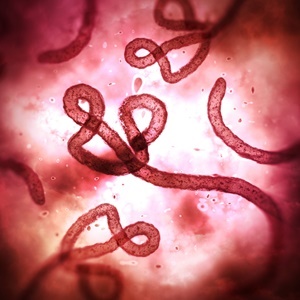
New York - A new Ebola virus species discovered in bats in Sierra Leone has never been detected in sick humans or other animals, a new study shows.
It's the first finding of its type, according to the researchers.
The newly identified species - called Bombali - has the potential to infect human cells. But it's not known whether it has already caused human infections or if it is harmful to humans.
"If you want to prevent Ebola outbreaks, it's important to know which species are hosts and can shed the virus. Then we can help target changes in behavior so we can protect people, which is the overarching goal of our work," said study co-lead author Tracey Goldstein.
Goldstein is associate director of the One Health Institute at the University of California, Davis School of Veterinary Medicine.
"We want to discover viruses that have the genetic prerequisites for human infection and then prioritize them for further study and intervention," study co-lead author Simon Anthony added in a university news release.
Anthony is a virologist and assistant professor of epidemiology at Columbia University in New York City.
The study was published recently in the journal Nature Microbiology. Preliminary findings were announced by the government of Sierra Leone in July.
Prior to this discovery, there were five known species of Ebola virus. This study adds to growing evidence that bats are the likely hosts of Ebola viruses, according to the researchers.
Infected bats are not known to show signs of illness but can shed the Ebola virus in their saliva and faeces. Other animals and people may become infected if they touch live or dead bats, consume food or water on which bats have fed, or come into contact with the urine or feces of infected bats.
Ebola is a severe fever that is often fatal. Symptoms include internal and external bleeding, fever, headache, muscle aches, vomiting and diarrhea.
The researchers emphasised that this discovery does not mean people should try to kill or eradicate bats. In fact, doing so can increase the risk of virus transmission, not halt it.
They also noted that bats play a crucial role in controlling insects that can transmit disease and damage crops.




 Publications
Publications
 Partners
Partners











